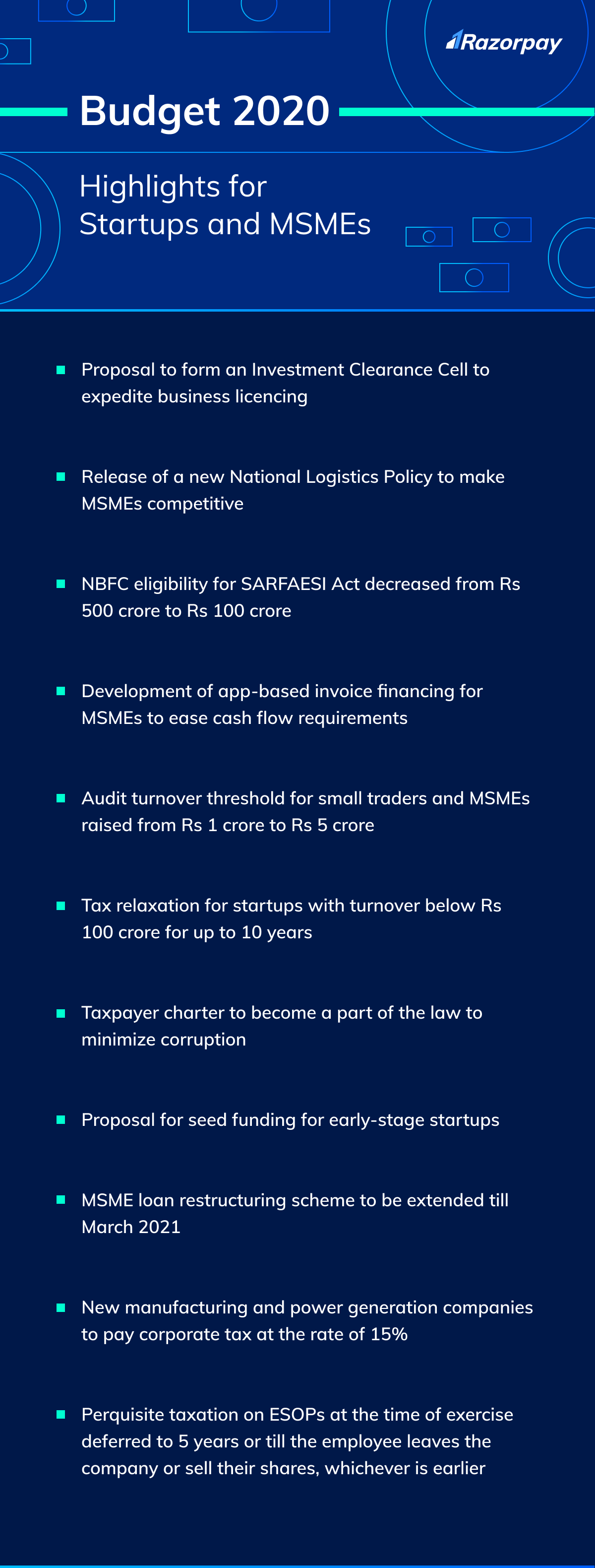It took quite some time coming, but when they did, the reforms came as big bangs in Budget 2020.
Our Honorable Finance Minister, Nirmala Sitharaman presented her second Union Budget at a time when the Indian economy is witnessing its biggest slowdown since 2008. The economy needed a Budget to bolster growth by way of increased consumer demand, higher employment rates and ease in corporate as well as personal taxation. The FM delivered on all three counts.
And she adopted a three-pronged approach to do that – by focusing her Budget speech around aspiration, economic development and compassion. There was the possibility that this Budget would end up being merely a vision statement of the government, but thankfully, we believe it will give the economy that impetus it really needs.
Of course, even though the Budget had a lot for businesses, big and small, the highlight will remain the new personal income tax regime. Income tax slabs have been revised to lessen tax burden on the middle class, thus increasing their disposable income and purchasing power. This is great news not only for consumers, but businesses as well. Higher purchasing power translates into higher sales for businesses, after all. This encourages businesses to innovative job creators..
Like the Finance Minister said, entrepreneurship has always been the strength of India. Indian businessmen are risk takers who come up with disrupting solutions. And as someone who belongs to the robust startup ecosystem of India, I can say for all of us that the proposals presented in the Budget for startups and MSMEs will go a long way in boosting the economy.
For me, the two most important announcements in the Budget were around reduced compliance for MSMEs and relief in ESOP taxation.
The FM has proposed that the audit threshold for small traders and MSMEs will be raised from Rs 1 crore to Rs 5 crore. This means that there will be no requirement for businesses to get their accounts audited if their annual turnover doesn’t exceed Rs 5 crore. The one caveat here is that this will apply to only those businesses that carry out less than 5% of their transactions in cash. This move will decrease compliance requirements for small businesses and give them one more strong reason to accept digital payments.
For startups and their employees, the relief in ESOP taxation is a major positive to have come out of the Budget. The perquisite taxation at the time of exercising ESOPs has been deferred to 5 years or till they leave the company or till they sell their shares, whichever is earlier. This move will incentivise talent to work for startups. I had spoken about this to the media in my pre-Budget expectations as well. ESOPs are often a significant component of a startup employee’s compensation, and not having to pay tax at the time of allotment of shares will work wonders for the best talent in India to continue being a part of this burgeoning ecosystem.
Another huge plus for startups for the increase in turnover limit for tax exemptions, from Rs 25 crore to Rs 100 crore. The eligibility to claim this exemption has also been hiked from 7 years to 10 years. What this means is that startups with turnover below Rs 100 crore will not have to pay tax on profits up to 10 years.
Coming back to the MSME sector, it was heartening to hear the FM say that 5 lakh MSMEs have so far benefited from the restructuring of loans. I am happy that the Finance Ministry has asked the RBI to extend this debt restructuring window by one more year. This, along with the proposals to introduce an app-based invoice financing product and a new logistics policy, will make MSMEs more competitive and ease their working capital issues.
Among the other notable Budget highlights that caught our ear were on the lines of encouraging entrepreneurship within the country. The single investment clearance cell that will aim to expedite the process of setting up a business by merging all required licences into a single hub is great news. In a similar vein, the digital platform for seamless application and capturing of intellectual property rights will help startups protect their original ideas. India is already moving up in the Ease of Doing Business index and both of these endeavors will further help.
Overall, I can only say that the traditional bahi-khata wrapped in a red cloth, which has replaced the corporate briefcase, seems to be bringing good news for the economy. India needs a clean, reliable and robust financial sector to pull the economy out of the slump. And Budget 2020 was a step in the right direction. There is spirit, there is hope and now, there is also a clear roadmap.
This article was first published in Financial Express.




